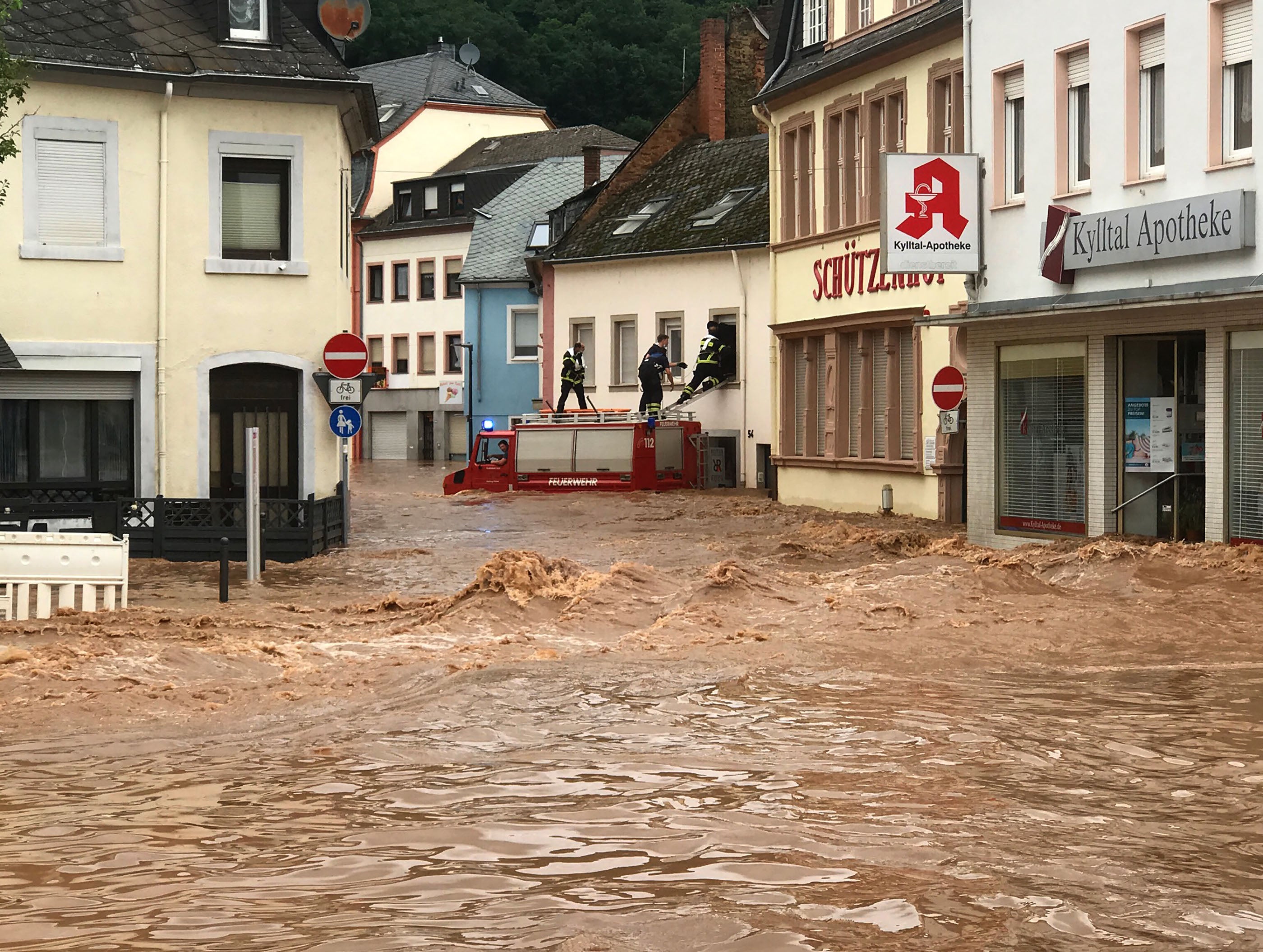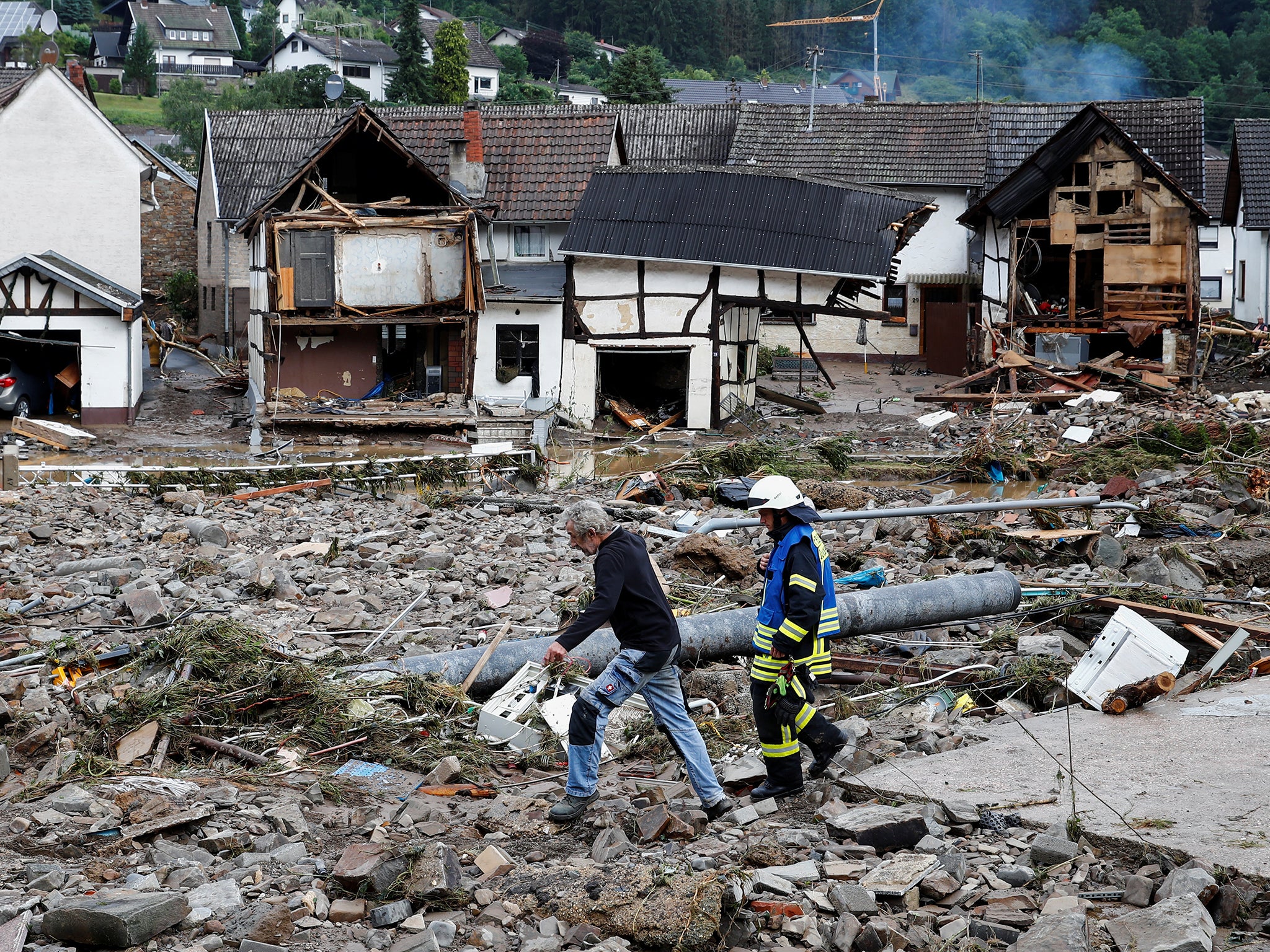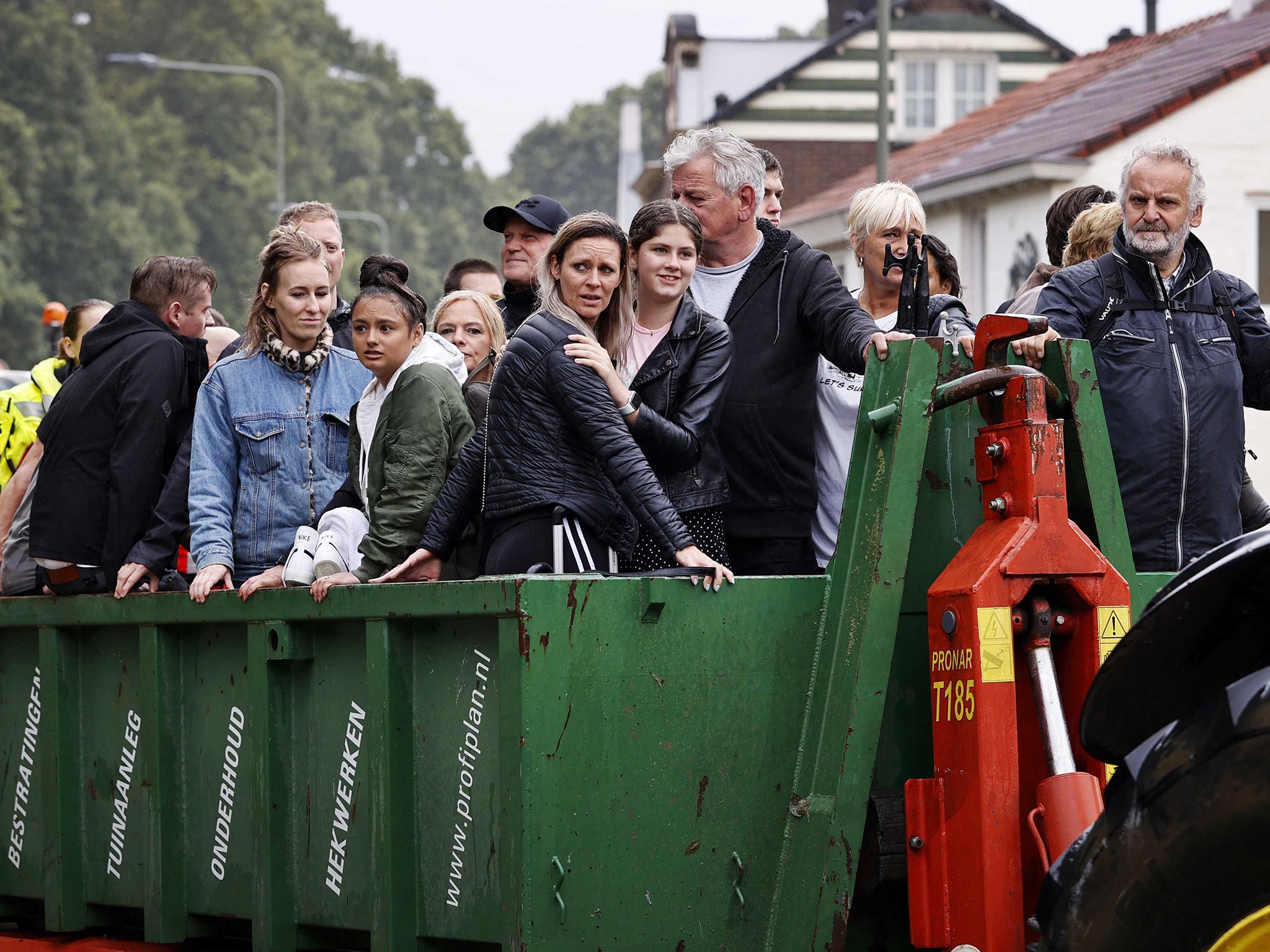
At least 80 people have died and as many as 1,300 remain unaccounted as a result of freak flooding in western Germany and Belgium where some areas saw the highest rainfall in more than 100 years.
Two firefighters sent to rescue stranded residents are among the victims after relentless rain engorged rivers, breaking their banks and flooding homes across several states. Nine residents of an assisted living facility for people with disabilities were also among the dead.
Angela Merkel expressed her sorrow at the “disaster” taking place in her country. She said: “Heavy rain and flooding doesn’t capture what happened”.
“I grieve for those who have lost their lives in this disaster. We still don’t know the number. But it will be many.”
As the death toll climbed, officials in Ahrweiler, a rural district between Bonn and Koblenz, said it “currently assumed that around 1,300 people are missing.”
In a statement issued late on Thursday, the local authority said: “In the area of the Bad Neuenahr-Ahrweiler alone there were over 1000 open missions - currently rescue missions are still ongoing. Due to the complex damage situation, a final assessment of the situation is currently not possible.”
German authorities confirmed that 28 people had died in the state of Rhineland-Palatinate, where six houses collapsed in the most serious single incident and scores still remain missing. At least 30 more are dead in North Rhine-Westphalia.
About 25 more houses are at risk of collapsing in the worst-affected district of Schuld bei Adenau in the hilly Eifel region near Bonn. Dozens of people in the district remained unaccounted for.
Belgian media reported eight deaths in the country.

A request for international assistance by the European Commission was met by the Italian civil protection agency, which said it had sent personnel and vehicles to aid the rescue effort. Boris Johnson said on Thursday evening the UK was ready to support the flood recovery efforts in Europe.
The deluge of rain has disrupted rail, road and river transport in Germany’s most populous region.
“In some areas, we have not seen this much rainfall in 100 years,” German weather service spokesperson Andreas Friedrich told CNN. “In some areas we’ve seen more than double the amount of rainfall which has caused flooding and unfortunately some building structures to collapse.”
The small city of Hagen, near Dortmund, declared a state of emergency after the Volme river breached its bank. Residents were urged to move to higher ground as dozens of cars were pictured floating in the streets on a powerful stream of water.
“We see this kind of situation only in winter ordinarily,” Bernd Mehlig, an environment official from North Rhine-Westphalia, the most affected region, told broadcaster WDR. "Something like this, with this intensity, is completely unusual in summer."
Some parts of Hagen have become inaccessible and are isolated due to the high waters. Residents in Dusseldorf, a major business hotspot, were also asked to evacuate.
Two men, aged 77 and 82, died in their basements after they were flooded in the western cities of Kamen and Wuppertal, the police said.
A dam is threatening to burst in North Rhine-Westphalia as water levels swelled and authorities sounded the alarm to residents whose homes could be affected.

A threat is also emerging from another dam which could break in several villages below the Steinbachtal reservoir and Rhine-Sieg county south of Cologne, where evacuations have been ordered.
One of the firefighters died after he lost his foothold in the floodwaters and got swept away. A care home in Hagen had to be evacuated, while cellars and some hospitals saw flooding.

Landslides have been reported in some places, disrupting relief work, and major highways lie inundated. In the south and east of the country, many railway services were stopped.
Neighbouring Belgium has also been battered by heavy rains, causing flash floods in which at least six people have died. In Liege, there are fears the Meuse river could break its banks, with the mayor urging residents to evacuate the city.
Elsewhere, the Netherlands government rushed some 70 troops to the southern province of Limburg late on Wednesday to carry out evacuation work and use sandbags to plug the banks of a river that was on the brink of bursting.
At least 11 areas of France are under orange alert for floods as of Thursday, as the unusual storm dumped heavy rains at the start of the summer season, reported The Local. The equivalent of two months of rain has already fallen on some areas in the last one or two days, according to the French national weather service.
And in Luxembourg, torrential rains caused flash floods in several areas of the country. About 100 road sections are now blocked and the Alzette river has burst its banks. Emergency services had responded to 1,200 calls related to the floods as of Thursday morning, reported the Luxembourg Times.
Additional reporting by agencies







